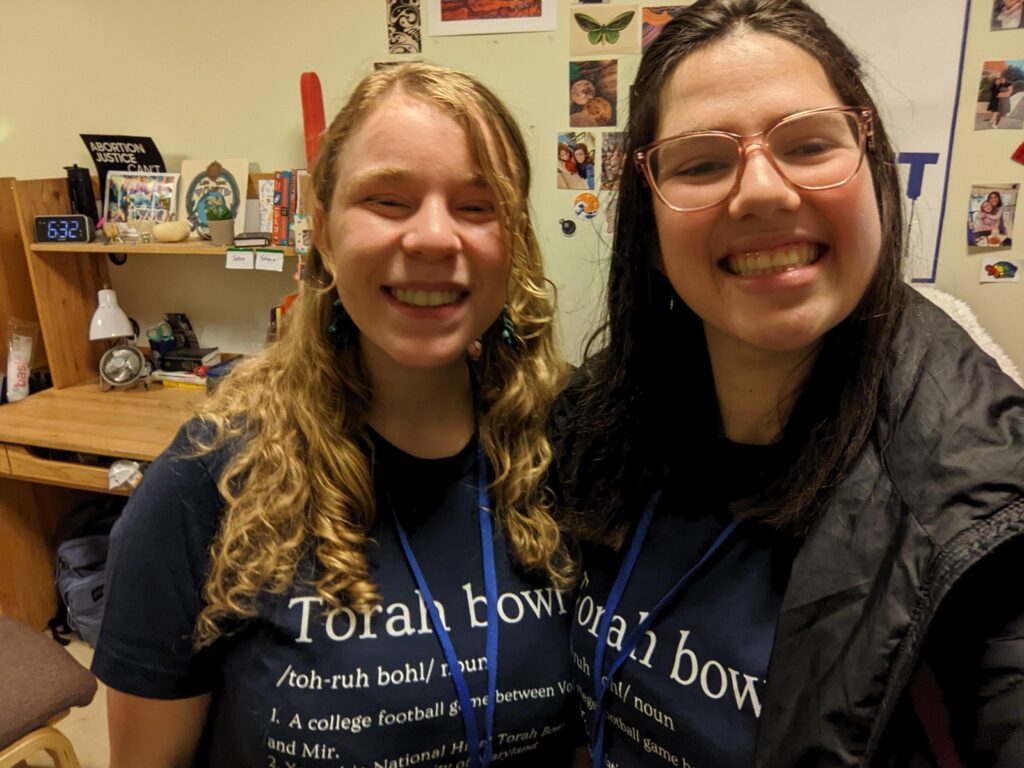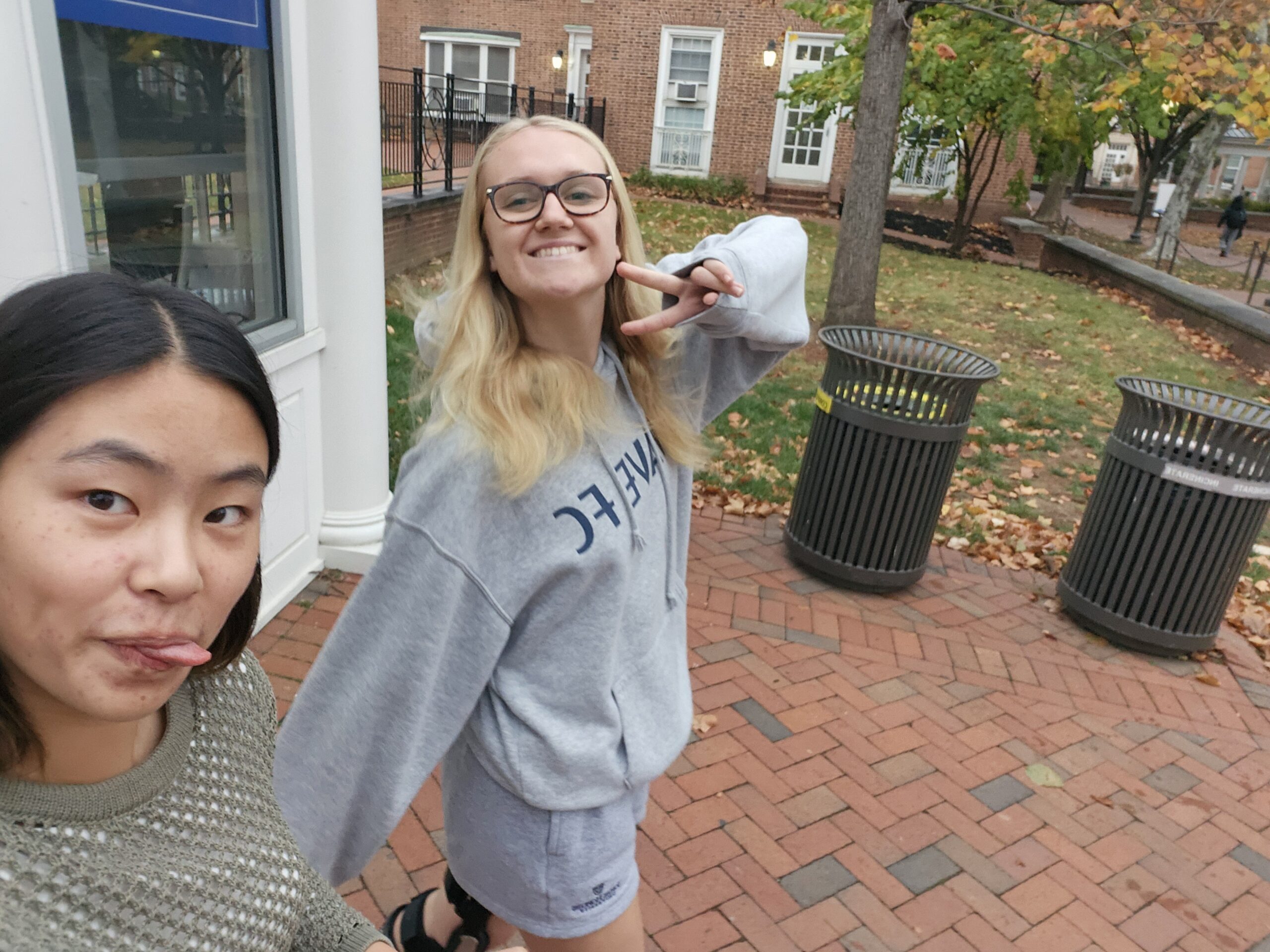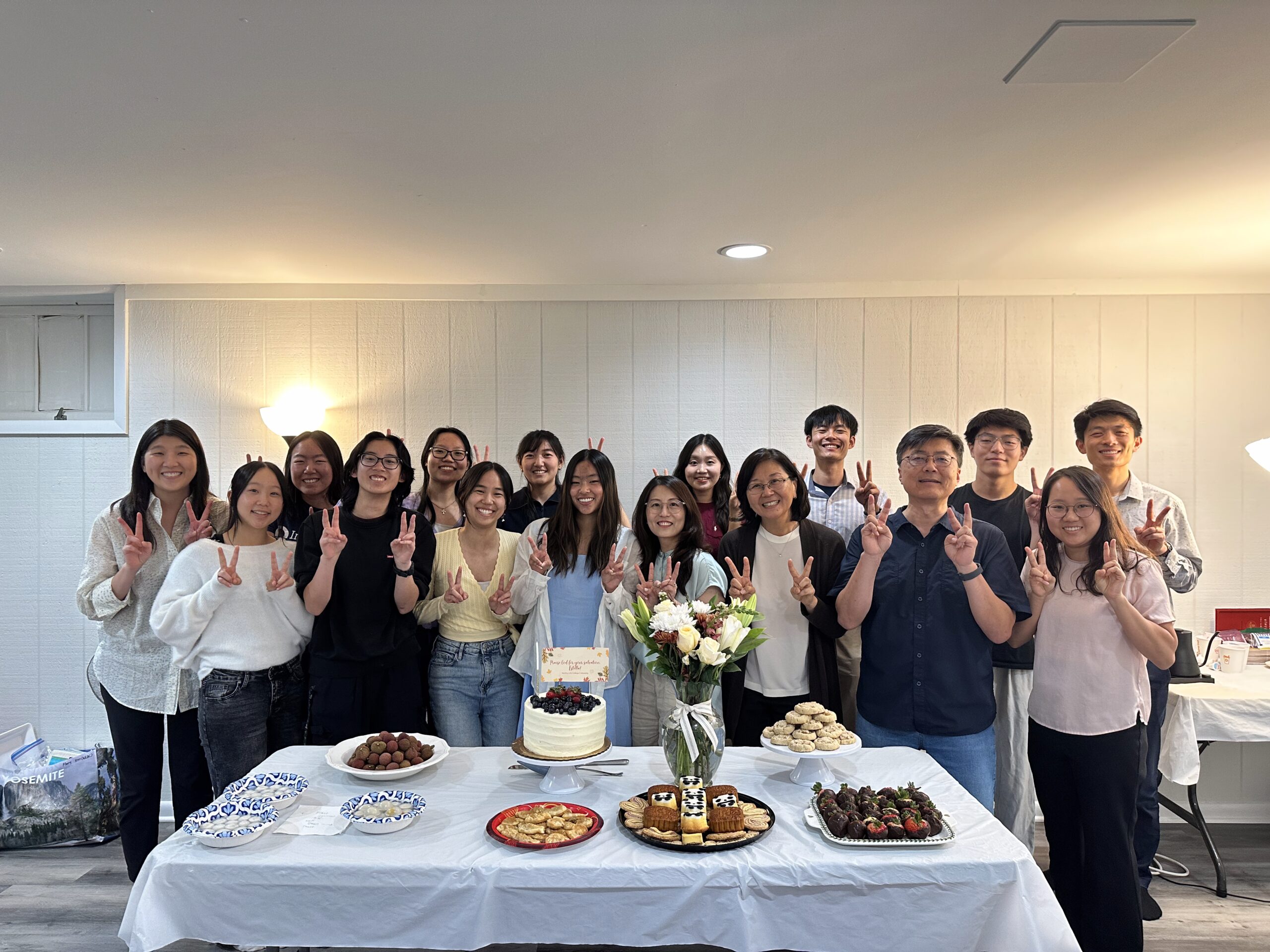
12:30 p.m. brings a peak of happiness. It’s time for lunch at the kosher Ta’am Tov at Hopkins Café. Strawberries, blueberries, and freshly cut pineapples greet me. I smell the cheese-stuffed potatoes, garlic knots, and sushi for Thursday’s meal. But the highlight is Dovid, the chef for students who keep kosher and those with severe allergies. Dovid stands behind the grill, ready to custom craft my lunch. But…. what should I order? Avocado-based ultra-breakfast? Jackfruit tacos? Israeli Shakshuka? I seek inspiration from the menu. The dishes are all named after current Hopkins students based on their most common order. I decide on Dovid’s legendary rosemary salmon wrap.
As Dovid cooks the food, I enjoy hearing about his Jewish childhood in Iran and about his grandchildren. I am moved by all the thought Dovid puts into what he serves, surprising us with special dishes. My mom was amazed by the salmon wrap when she visited Hopkins so Dovid taught me how to recreate it. Now I have a great go-to lunch for the future.
As I walk over to eat with my classmates, I receive a common question: “Wait, what is kosher anyway?” “Keeping kosher” refers to the traditional Jewish eating lifestyle. For example, I refrain from mixing milk and meat. But to me, it infuses sanctity into the mundane act of eating. At Hopkins, I have gained a newfound appreciation. Eating kosher reminds me to be deliberate in my choices. Eating kosher creates a vibrant community.
Kosher eating builds community through barbecues and discussing ideas over bagels and lox, like the Jewish take on the trolley problem or Talmudic references to Pi (okay, bagels are a stereotype, but they’re so good. Please come to Hillel and try them!) On Thursdays, we munch on pudding mix cookies in a reading group on existential philosophy. I also relish shopping in Seven Mile Market, the largest kosher supermarket in North America located only twenty minutes away from Hopkins. I’ve discovered how grocery stores are microcosms of a culture.
However, the prime example of how food helps to build community is the weekly Shabbat meals served at Hopkins Hillel, attended by kosher and non-kosher eaters alike. Shabbat refers to the Jewish day of rest every Saturday. On Friday nights, a hundred students from all walks of life come together to eat and socialize. The big hit is always the matzah ball soup. I, however, opt for smaller home-cooked meals at Chabad, enjoying the accompanying three-hour conversations. The highlight for me is the lesser known third meal of Shabbat. It’s called Seudat Shlishit, or The Third Meal. We sing songs and share insights while nibbling on cheese and Nish Nosh salad as the day morphs into the night.
Due to my particular eating requirements, having access to a vibrant food culture is not always a given. I am especially touched by the consideration others express. For instance, my wonderful roommate spent half an hour scouring for kosher chocolate. I am indebted to Chef Dovid and to Hopkins for providing me with such a wonderful food experience—I can’t wait for whatever I order next.




